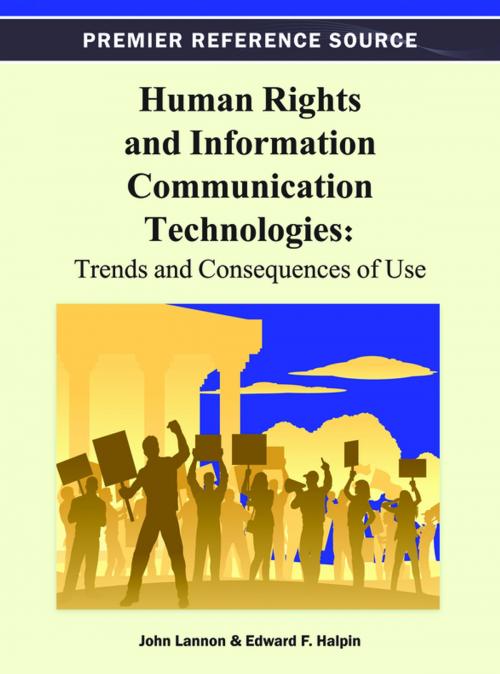Human Rights and Information Communication Technologies
Trends and Consequences of Use
Nonfiction, Computers, Advanced Computing, Information Technology, General Computing| Author: | ISBN: | 9781466623590 | |
| Publisher: | IGI Global | Publication: | July 31, 2012 |
| Imprint: | Information Science Reference | Language: | English |
| Author: | |
| ISBN: | 9781466623590 |
| Publisher: | IGI Global |
| Publication: | July 31, 2012 |
| Imprint: | Information Science Reference |
| Language: | English |
Intergovernmental agencies, governments, and non-governmental organizations are now using Information and Communications Technologies (ICTs) to collect, organize, and disseminate information on peoples’ rights, the promotion of human rights, and the protection of individuals and communities at risk. Human Rights and Information Communication Technologies: Trends and Consequences of Use will provide a comprehensive examination of the use and application of information and communication technologies in the world of human rights. This will contribute significantly to understandings of the impact of ICTs on the promotion and protection of human rights in societies around the world. This book will provide a valuable tool and insight for academics from a range of fields, including information management, information systems, communications, information technology, international relations, human rights, politics, law, and sociology. It will also be useful to international non-governmental organizations, non-governmental organizations, and governments for policy and practice.
Intergovernmental agencies, governments, and non-governmental organizations are now using Information and Communications Technologies (ICTs) to collect, organize, and disseminate information on peoples’ rights, the promotion of human rights, and the protection of individuals and communities at risk. Human Rights and Information Communication Technologies: Trends and Consequences of Use will provide a comprehensive examination of the use and application of information and communication technologies in the world of human rights. This will contribute significantly to understandings of the impact of ICTs on the promotion and protection of human rights in societies around the world. This book will provide a valuable tool and insight for academics from a range of fields, including information management, information systems, communications, information technology, international relations, human rights, politics, law, and sociology. It will also be useful to international non-governmental organizations, non-governmental organizations, and governments for policy and practice.















